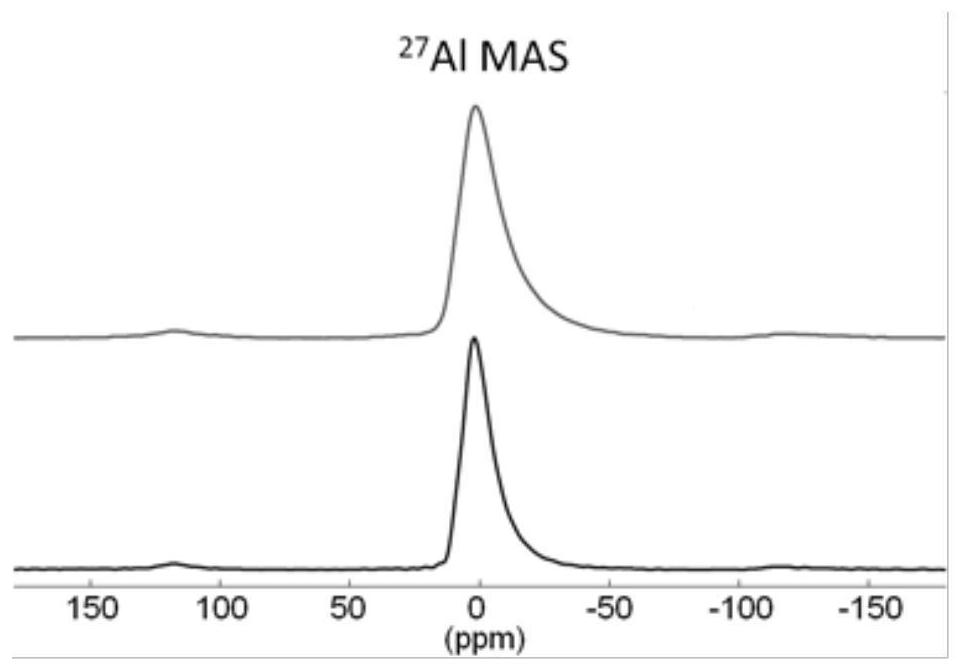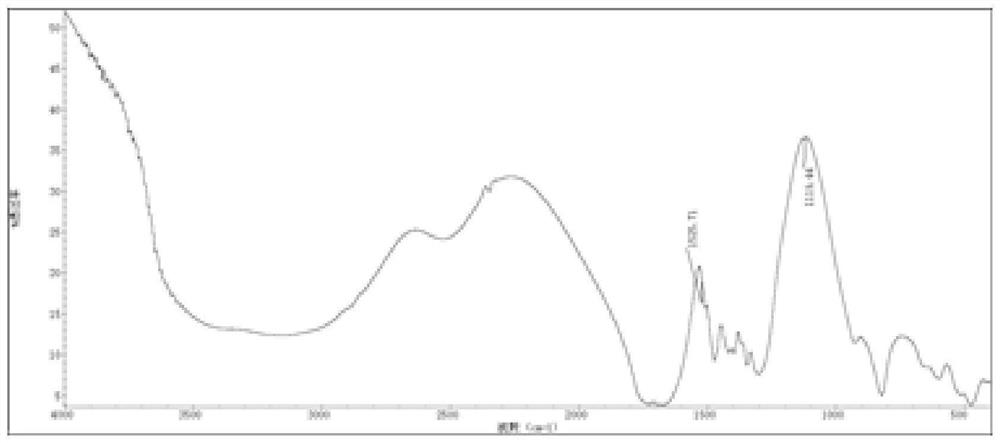Preparation method of low-cost mullite fiber
A mullite fiber, low-cost technology, applied in the field of low-cost mullite fiber preparation, can solve problems such as extremely high requirement for raw material activity, low activity, lack of spinnability and the like
- Summary
- Abstract
- Description
- Claims
- Application Information
AI Technical Summary
Problems solved by technology
Method used
Image
Examples
Embodiment 1
[0038] Add formic acid and acetic acid into distilled water at 50°C, stir and mix well before adding aluminum hydroxide powder. The molar ratio of aluminum hydroxide to formic acid and acetic acid is 1:1. Afterwards, the mixture solution was reacted at 100° C. under continuous stirring and reflux for 10 hours, and then concentrated to remove carboxylic acid at a temperature of 40° C. and a vacuum of 0.09 MPa to prepare a transparent aluminum carboxylate solution. Mix liquid silicon dioxide and formic acid at a molar ratio of 1:1, ultrasonically disperse for 30 minutes, and filter the precipitate; add lactic acid, glycerin, polyvinyl butyral, and polyvinyl alcohol to the clarified liquid for mixing to obtain a silicon additive.
[0039] Depend on figure 1 As can be seen from the NMR spectrum of the aluminum carboxylate solution: the prepared aluminum carboxylate solution is based on the polymer Al 8- 18 OX 12-27 form exists. Depend on image 3 The infrared test pattern o...
Embodiment 2
[0042]Add propionic acid and oxalic acid into distilled water at 65°C, stir and mix well before adding aluminum hydroxide powder. The molar ratio of aluminum hydroxide to propionic acid and oxalic acid is 1:2. Afterwards, the mixture solution was reacted at 150° C. under continuous stirring and reflux for 20 hours, and then concentrated to remove carboxylic acid at a temperature of 70° C. and a vacuum of 0.09 MPa to prepare a transparent aluminum carboxylate solution. Depend on figure 1 As can be seen from the NMR spectrum of the aluminum carboxylate solution: the prepared aluminum carboxylate solution is based on the polymer Al 8-18 OX 12-27 form exists. Depend on image 3 The infrared test pattern of the aluminum carboxylate solution shows that the functional groups of its multimer exist in the form of groups such as (HCOO) (RCOO) (OOC-COOH).
[0043] Then mix the silica sol and acetic acid at a molar ratio of 1:2, ultrasonically disperse for 45 minutes, and filter the...
Embodiment 3
[0045] Add malonic acid and citric acid into distilled water at 80°C, stir and mix well, and then add aluminum hydroxide powder. The molar ratio of aluminum hydroxide to malonic acid and citric acid is 1:3. Afterwards, the mixture solution was reacted at 200° C. under continuous stirring and reflux for 30 hours, and then concentrated to remove carboxylic acid at a temperature of 100° C. and a vacuum of 0.1 MPa to prepare a transparent aluminum carboxylate solution. Depend on figure 1 As can be seen from the NMR spectrum of the aluminum carboxylate solution: the prepared aluminum carboxylate solution is based on the polymer Al 8-18 OX 12-27 form exists. Depend on image 3 The infrared test pattern of the aluminum carboxylate solution shows that the functional groups of its multimer exist in the form of groups such as (HCOO) (RCOO) (OOC-COOH).
[0046] Then liquid silicon dioxide and propionic acid were mixed at a molar ratio of 1:3, and the precipitate was filtered after ...
PUM
 Login to View More
Login to View More Abstract
Description
Claims
Application Information
 Login to View More
Login to View More - R&D
- Intellectual Property
- Life Sciences
- Materials
- Tech Scout
- Unparalleled Data Quality
- Higher Quality Content
- 60% Fewer Hallucinations
Browse by: Latest US Patents, China's latest patents, Technical Efficacy Thesaurus, Application Domain, Technology Topic, Popular Technical Reports.
© 2025 PatSnap. All rights reserved.Legal|Privacy policy|Modern Slavery Act Transparency Statement|Sitemap|About US| Contact US: help@patsnap.com



